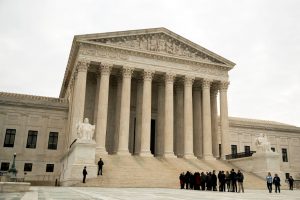Washington, Jun 11 (EFE).- The US Supreme Court on Monday gave the green light to states seeking to purge their voter rolls of people who have not exercised their right to vote for the past two general elections and have not responded to notices that they were going to be dropped from the rolls.
By a 5-4 decision, the high court’s conservative majority backed a regulation in Ohio for purging voter rolls, thus reversing a ruling by a lower federal court and opening the door for other states to use Ohio’s model.

The majority opinion, written by conservative Justice Samuel Alito, emphasized that the Ohio rule serves to guarantee that the voter rolls are up to date and that people are not kept on them who no longer reside in the district for which they apply.
The high court’s majority felt that the law does not prohibit a state from dropping from the voter roll people who do not go to the polls and, in fact, allows the state to assume that voters have moved if they have not responded to written mailed notices to which they must respond if they want to remain on the voter rolls.
Ohio – which has implemented this procedure since 1994 but was not sued over it until 2016 – initiates the process to purge the voter rolls once the person in question has not voted for two years, although a total of six years must have passed before they are definitively removed from the voter roles.
Alito recognized that federal law prevents states from eliminating eligible people from the voter roles just because they have not voted, but he said that the mechanisms used by Ohio and other states comply with constitutional conditions.
The American Civil Liberties Union called the ruling a “setback for voting rights.”
But the ruling is being viewed as a victory for Republicans over people who feel that rules like Ohio’s limit minorities – who tend to vote Democratic – from exercising their right to vote just five months before the November mid-term elections.
